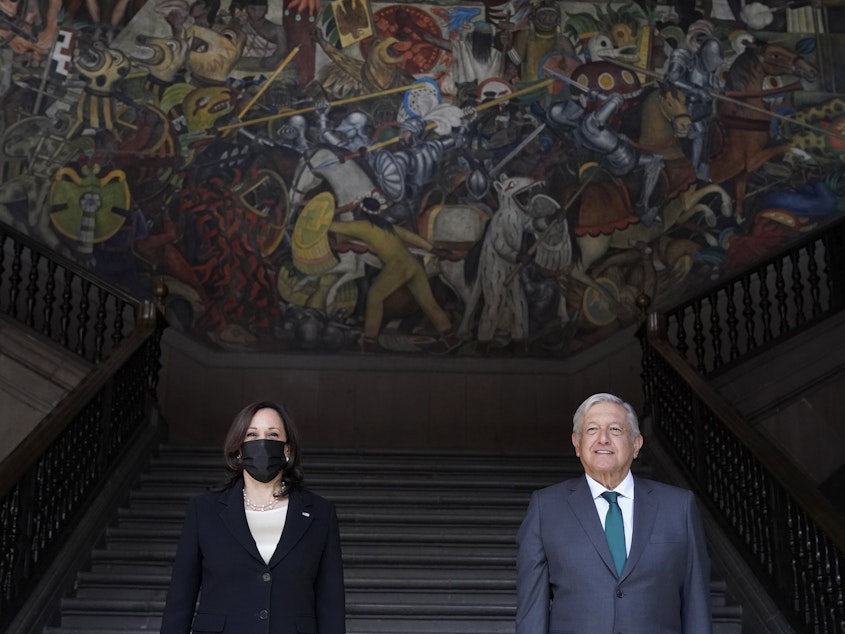Harris Wanted To Talk About Migration, But Instead Got Pushed On A Border Visit

Vice President Harris is wrapping up a three-day visit to Guatemala and Mexico, a trip where she sought to focus on the root causes of migration from Central America to the United States, but was overshadowed by questions about why she hasn't traveled to the border, where record numbers of people have been trying to seek asylum.
In an interview that aired Tuesday morning on NBC's Today show, Harris was pressed about why she has yet to visit the U.S.-Mexico border, as she has been urged to do by lawmakers from both parties.
Harris flashed irritation. "And I haven't been to Europe. And I mean, I don't understand the point that you're making. I'm not discounting the importance of the border," she said, making the point that she was focused on solving the border problem at its source.
Her answer fueled Republican critics back at home. And she expressed more frustration with reporters traveling with her, when she was asked again about it. "Listen, I've been to the border before. I will go again," Harris said.
"But when I'm in Guatemala dealing with root causes, I think we should have a conversation about what's going on in Guatemala," she said.
Harris said that "you can't say you care about the border without caring about the root causes, without caring about the acute causes, which include the fact that you're looking at populations, particularly from Central America, who are plagued by hunger and the devastation caused by the hurricanes and, of course, the effect of the pandemic," calling it an "intractable issue."
The issue came up in the White House press briefing room, too, where, Biden's press secretary Jen Psaki said that Harris "may go to the border" at some point.
But, Psaki said, Harris "is in the Northern Triangle now to have discussions with leaders, with community leaders, with civil society leaders, with the embassy about how we can work together."
Psaki rejected Republican criticism of Harris' lack of a visit to the border, saying the administration is "not taking our guidance and advice from them, but if it is constructive and it moves the ball forward for her to visit the border, she certainly may do that."
Harris also faced criticism on the first day of her trip, after she told people considering migrating to the U.S. from the region, "Do not come." Democratic Rep. Alexandria Ocasio-Cortez called Harris' forceful statement "disappointing" and said that "seeking asylum at any US border is a 100% legal method of arrival."
Asked about that criticism, Psaki said that a priority of the administration "is to improve asylum processing at the border" but that "we need more time to get the work done to ensure that asylum processing is where it should be."
Harris signed an agreement on Tuesday at a meeting with Mexico's President Andrés Manuel López Obrador, agreeing to work together on economic opportunities in northern Central America. The White House said the two governments will work together "to foster agricultural development and youth empowerment programs in El Salvador, Honduras and Guatemala and will co-create and co-manage a partnership program enabling them to better deliver, measure, and communicate about assistance to the region."
The U.S. is also investing $130 million in technical assistance over three years as Mexico works on labor legislation and programs to improve working conditions and address child and forced labor.
The two countries agreed to start sharing information about gangs involved in smuggling and human trafficking, a significant step after Mexico restricted security cooperation with U.S. law enforcement over the last year, since Mexico's former defense minister was arrested on drug trafficking charges in the United States. [Copyright 2021 NPR]



